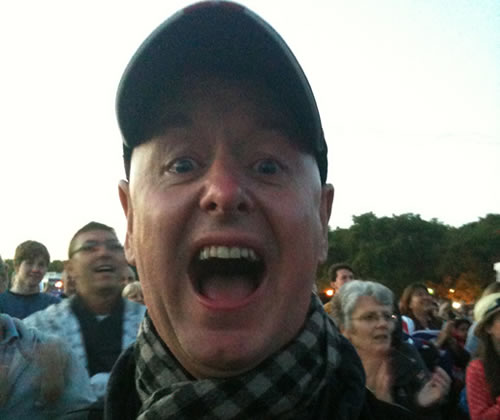Professional Motion Picture Production and Distribution NEWS
| Q&A with Editor Chris Gill on Intuition and the Power of the Cutting Room By Kelcie Des Jardins posted May 22, 2013, 16:29 |
 |
Chris Gill began his editing career with the UK miniseries A Kind of Loving (1982). After making the switch to film with Danny Boyle's 28 Days Later (2002), Gill had been in high demand on post-production crews on a wide range of projects. In this brief Q&A with StudentFilmmakers, Gill talks about his experience with the digital shift and the importance of intuition in the cutting room.
Tell us a bit about your background in the film industry. Did you always envision yourself as an editor?
Chris Gill: I started as a runner in a small production company in Manchester. I quickly gained experienced in post-production and started to cut documentaries and corporate films and commercials. Then I joined Granada Television with the hope I would work on drama, and I did. Then the next hope was to work on a feature film and Danny Boyle gave me the great career opportunity with 28 Days Later. I never thought I would get to that level and would love to work with him again in the future.
Even though film is historically a young media, industry has changed considerably in the past decades with the shift to digital; what do you think are the advantages of this move?
Chris Gill: The digital revolution has made movie making far more accessible to everyone, but you still have to learn your craft and you never stop learning and developing. The drawback for the cutting room is that we are the new laboratory, and the workload has massively increased which involves longer hours!
Following the last question, what's in your HD editing suite? Could you describe your setup and editing programs you use to edit HD footage?
Chris Gill: I work on Avid. I used to work on Lightworks, but the system is in the process of renewal.
What criteria do you have for evaluating a cut?
Chris Gill: All cutting [is] based on intuition and irreplaceable experience--it's not age, it's talent.
When editing, do you tend to rely more on the script or your gut instinct? Does this change from project to project?
Chris Gill: The script is paramount, but the editor often becomes the third author of the work as the input can make or break the movie.
What is your opinion on editing being considered an "invisible art"? Do you agree or do you feel this is sometimes misunderstood?
Chris Gill: Film editing is a misunderstood art form and so few people appreciate the complexities and the power of the cutting room. Magic can come out of mediocrity and many a film has been saved by the skill of an exceptional editor.
You have worked extensively with Danny Boyle throughout your career (i.e. 28 Days Later, Sunshine). How would you describe an editor's relationship with the director?
Chris Gill: Collaboration, respect, and the willingness to try anything to improve the movie.
Do you have a project you are most proud of? Is there a project you would like to re-cut?
Chris Gill: I give my all on all projects, big and small. I enjoyed working on 28 Weeks Later as I was given free rein to play and create and on a stupidly tight deadline. I would love to go back and recut Sunshine and make the final third work better.
What advice would you offer for budding editors?
Chris Gill: Cut as much variety of work as possible. Go to the cinema and watch the experts perform their craft.
![]()